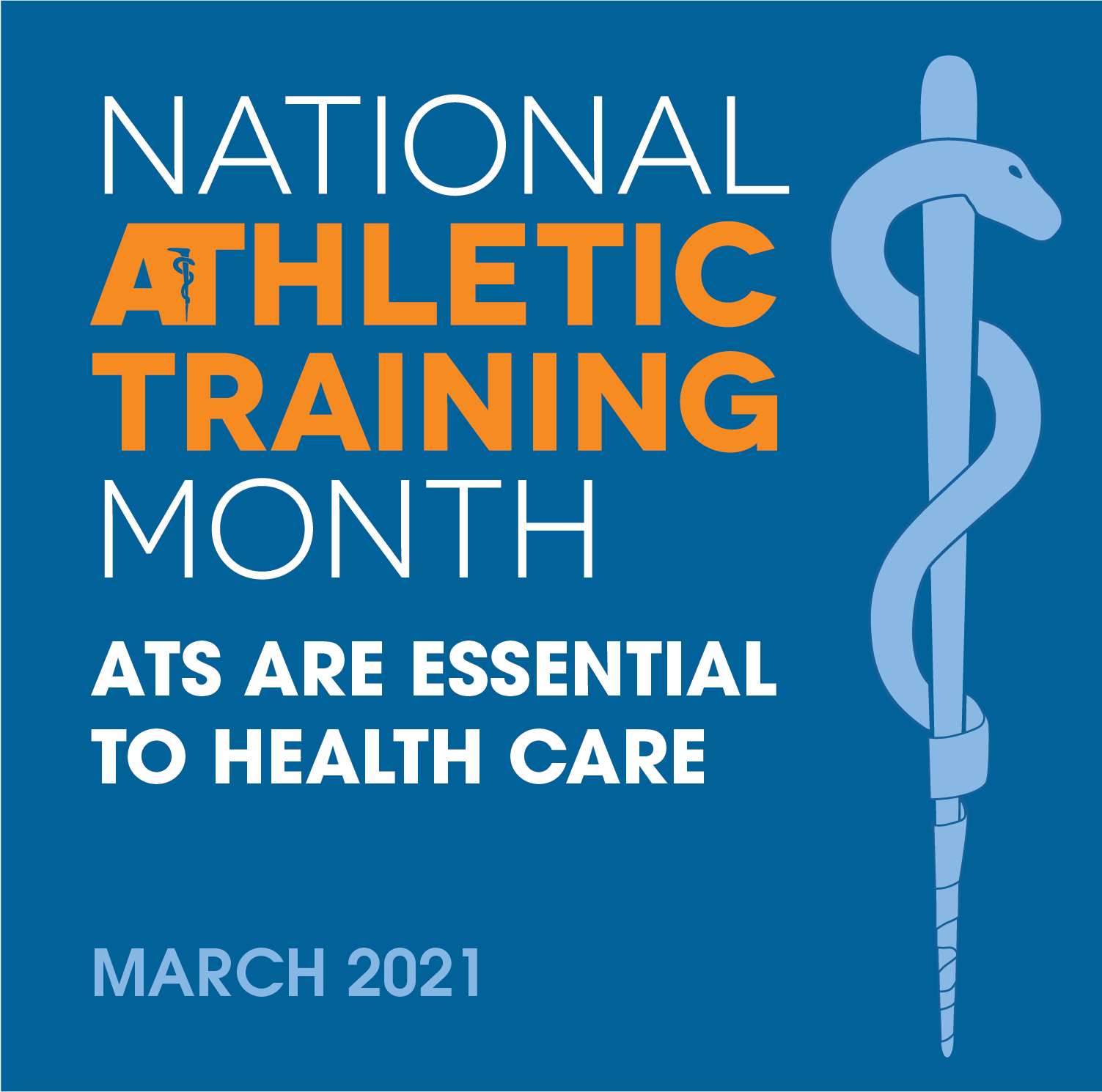 Happy National Athletic Training Month!
Happy National Athletic Training Month!
Given all that has happened over the last year or so I encourage all athletic trainers to stop, take a deep breath, and pat yourself on the back for continuing to work through a once-in-a-lifetime pandemic keeping yourself and patients safe. If there was ever a question as to whether athletic trainers' clinical skills, passion, adaptability and perserverance were top notch COVID-19 has proven there is no doubt.
To that end, this year's theme, ATs are essential to health care, is more than appropriate. It also got me wondering, what does essential mean? If you ask Webster's Dictionary you'll find:
Essential (n.) - of the utmost importance: BASIC, NECESSARY, INDISPENSABLE
The Basics:
- Athletic trainers (ATs) are healthcare providers recognized by the American Medical Association (AMA), Health Resources Services Administration (HRSA) and Department of Health and Human Services (HHS): ATs & NPI Numbers
- ATs are highly educated: 70% of athletic trainers have a master’s degree (a master’s degree only recently became the entry-level standard in 2020): Professional Standards
- ATs are focused on the primacy of their patients and providing ethical and competent care: Code of Ethics
- ATs provide various clinical services and in a range of job settings and are NOT personal trainers: Skills & Settings
- ATs are not personal trainers: ATs v. Personal trainers
The Necessary:
- ATs are licensed in 49 states and the District of Columbia. The fight continues in California. CA Licensure Update
- Board of Certification (BOC, Inc.) examination is required in 48 states and the District of Columbia: Board of Certification
- If you have a sports program, ATs should be a requirement not an "add-on": You Too Can Hire an AT
- ATs aren't just for evalutiona and rehabilitation, prevention is the key: Decrease Injury Rates
- ATs have the skills to make a difference: Built for This
The Indispensable:
- ATs have become the leader on the front lines of resuming sports during the pandemic: COVID-19 Response
- ATs are some of the most highly trained professionals when it comes to diagnosis, treatment, and recovery from concussions: ATs and Concussion Care
- Athletic trainers save lives: Preventing Sudden Death in Sports
Further Exploration:
Association for Applied Sports Psychology: http://www.appliedsportpsych.org/
American College of Sports Medicine: http://www.acsm.org/
American Orthopedics Society for Sports Medicine: http://www.sportsmed.org/
American Society of Biomechanics: http://www.asbweb.org/
Athletic Training & Sports Health Care Journal: https://www.healio.com/orthopedics/journals/atshc
College Athletic Trainers' Society: http://www.collegeathletictrainer.org/
At Your Own Risk: https://www.atyourownrisk.org/
Board of Certification, Inc.: https://www.bocatc.org/
Commission on Accreditation of Athletic Training Education: https://caate.net/
International & National Athletic Training Associations: https://www.nata.org/professional-interests/international/resources/associations
Journal of Athletic Training: https://meridian.allenpress.com/jat
Korey Stringer Institute: https://ksi.uconn.edu/
National Athletic Trainers' Association: http://www.nata.org/
National Academy of KinesiologY: http://www.nationalacademyofkinesiology.org/
Sports Health Journal: https://journals.sagepub.com/home/sph
Sports Medicine & Health Science Journal: https://www.sciencedirect.com/journal/sports-medicine-and-health-science
World Federation of Athletic Training & Therapy: https://www.wfatt.org/
**This list is not all inclusive and is meant to be sample of resources to introduce you to the profession of athletic training.
Disclosure: The content contained in this blog is for informational purposes only. The content is not intended to be a substitute for professional medical advice, diagnosis or treatment. Always seek the advice of your physician, athletic trainer, or other qualified health provider with any questions you may have regarding a medical condition. If you think you may have a medical emergency, call your doctor or 911 immediately.
Image Credit: National Athletic Trainers' Association (NATA)

